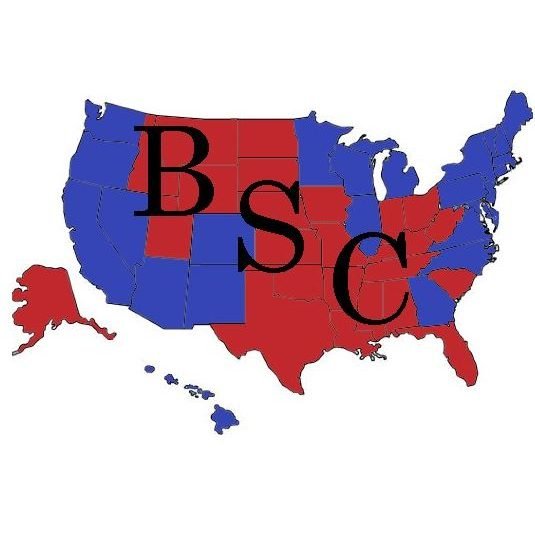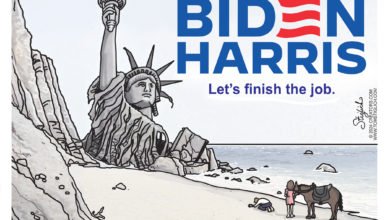Get Out Of The Way Joe, Private Industry Already Created Free College
Trying their best to continue being wrong about everything, the Biden administration recently proposed forcing successful, hard-working, and high-income families to foot the bill for two years of “free” community college for all students. As a parent myself, I barely want to pay for my own child to attend Maoist camps college. Now I have to pay for someone else’s kid? Like other leftist utopian dreams before it, this plan again misses the mark, because government involvement demands that people do things against their nature and makes the activity more expensive than if it had stayed out. Not only do students not all want or have to go to college, indeed nor should they, but there already is free college available to everyone.
Enter Saylor Academy.
Wikipedia’s opening description of Saylor Academy puts it this way: “[T]he foundation offers 317 free, college-level courses, which are selected as typical courses in high enrollment majors at traditional U.S. colleges.” Rereading that sentence a few times, it becomes obvious that there is no reason for every new freshman to pay for something as straightforward as Macroeconomics, Calculus, or Biology 101. Already, millions of students across the country pay exorbitant tuition rates to learn the same material at Occidental, Arizona State University, DePaul, Harvard, and wherever else. Why? Instead of confiscating more American incomes for the purpose of offering “free” college, Biden could simply have name dropped Saylor Academy. (I know, he has donors and giving away something for free instead of giving away something for “free” doesn’t jive with Democrats). To be certain, though, this place has empowered some of the best professors in the nation to build courses around already existing and free resources so that any student could enroll for free and acquire the commensurate coursework for free.
If Saylor Academy isn’t a prime example of the private market’s approach compared to the government’s, it’s hard to see what else would be. Well, except SpaceX versus NASA, private versus public healthcare exchanges, etc. Never mind.
No doubt, there are some major advantages to in-person learning. Interacting regularly with peers and networking is a huge boon to prospective graduates entering the workforce. There is also significant personal growth that comes from living independently and away from home. That being said, no one is stopping a Saylor Academy student from living in their own apartment while “attending” classes. Regular rent is still cheaper than room and board at most colleges and universities. Above all else, access to physical spaces for labs and other hands-on learning is undoubtedly hampered by interacting with computer screens. (Bear in mind that anyone clambering for free college is unlikely yearning for a hard science degree; these campus yokels usually want an ethnic transwomen’s studies diploma.)
For the vast majority of would-be, college-bound teens, there is no getting around the fact that higher education is detrimental to one’s finances, sense of self, personal responsibility, and mental health. Aside from the aforementioned focus on hard sciences like chemistry or a pre-med route, there is no accounting for taking out hundreds of thousands of dollars in high-interest loans to take required-but-wholly-unnecessary courses and learn about self-loathing courtesy of Critical Race Theory.
As society makes a push to give everyone a college degree, rather than shake down hard-working Americans it makes entirely more sense to adopt the methodology of Michel Saylor. Want to learn business accounting? Here’s a free course. Interested in European colonial history? Click here.
In my early twenties, I rented numerous volumes of the Great Courses series from my local library. These are recorded lessons from experts around the nation. I listened to real experts lecture about their life’s learnings around Greek mythology, American history, the cradle of civilization, and theoretical physics. In my thirties, I learned more about home improvement, coding, small business accounting, cryptocurrencies, and the Comex from YouTube channels than I would ever have expected to accomplish in the posh, elitist, and expensive university setting. We are both cursed and blessed with technology that harnesses all of human knowledge at our fingertips. While Big Tech and Big Brother might utilize this gift of technology perniciously, at the very least we should be able to adapt our education models for the positive.
This past year, more than any other time, has proven that online learning is here to stay. Amazingly, parents allowed their clueless and spoiled children to remain enrolled in expensive universities, despite the fact that they had no access to any of the amenities, classrooms, or social life. I have asked this a few times, but it’s worth asking again. Why? Had they simply transferred to Saylor Academy, these students would have had zero debt obligations for the school year and, in all likelihood, learned from a better cohort of professors. Whereas a single university employs a random whomever, Saylor Academy can make available any distinguished professor to any interested student.
If someone wants to pay $85,000 for a genders study degree from an elitist institution that hates them but loves their money, then fine. However, there are too many other options to excuse the enabling of the despicable abodes of moral cowardice and vacuity that we call American colleges and universities. The sooner more students get off these campuses and away from the anti-American rhetoric, the better.
Content syndicated from TheBlueStateConservative.com with permission.





